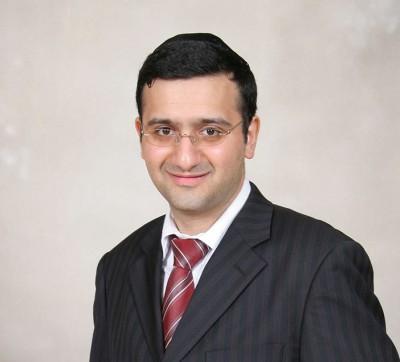

An interview with Simcha Musheyev, who has been essential in this project
The Bukharian community is relatively nascent on the nearly 250-year landscape of Modern-American history. Beginning in the 1970s, Bukharian Jews arrived on the shores of New York City in multiple immigration waves. Over a short period of time, this newly arrived group hoisted itself up and rose onto the stage of contemporary American Judaism. Today, the Bukharian community maintains an internal and ever-growing structure that satisfies a great number of its religious and social needs. However, as the community continues to expand, it faces the challenge of self-sufficiency. That being said, the Bukharian community does benefit from the work, devotion, and effort of the people who strive to guide it along a path of independence. I am therefore proud to interview a man whose name has become synonymous with religious, social, and communal affairs: Mr. Simcha Musheyev.
BJL: Simcha, you have been at the center of many communal projects in the past. Recently, there have been exciting rumors regarding the completion of a project long in need. Is it true that Beth Gavriel’s mikvah is almost complete?
Simcha Musheyev: Baruch Hashem, we are approaching the completion of our very own mikvah. Ever since Mikvah USA joined us two years ago, we were able to make real headway. The partnership is an interesting story and demonstrates how Hashem guides the world. A little over two years ago, Yaniv Meirov of Chazaq was approached by the Mikvah USA organization. Their mission is to build halachically-conformant mikvaot across America, and they were looking for the Bukharian rabbi of Atlanta, Georgia.
Their spokesman asked Yaniv for a connection because they had just finished the mikvah and needed a rabbi to manage it. At this point, Yaniv asked: “Your organization built a Mikvah in Atlanta, Georgia, and you cannot help us with one mikvah in Forest Hills, at the very heart of the Bukharian community?” Mikvah USA responded that they thought that the New York community had completed a project eight years ago. Yaniv explained to them that production was halted due to a lack of funds and conflicting priorities, among other things. After their conversation, Yaniv connected them to me and the rest is history. Baruch Hashem, and with the help of Mikvah USA, the public was reawakened to this great and important cause. I am happy to inform your readers that due to the community’s collective effort, we are setting the finishing touches on our very own mikvah.
BJL: I suspect that you are making it sound too easy. Did you face any impediments on the path to this great milestone?
SM: It was not easy. This 2-year period was very challenging for me on a personal level, but I learned many things, which I would like to share with the public. The Bukharian community is very giving and openhearted. However, we like to make sure that what we donate is actually put to good use for the benefit of the whole community.
The Community Center, the mikvah, and also the school on Grand Central belong to the Beth Gavriel Bukharian Congregation, a registered non-for-profit organization. The organization has the appropriate bylaws and rules, is publically listed, and cannot be sold for a profit. Therefore, investing in any of these projects is investing in our own future.
Furthermore, people were very happy to hear that the father generation of our community is eager for the younger generation to step up and take the lead. This includes re-elections for a new Board of Directors. More details will follow on this matter.
BJL: Would you define your role in all of this as community work? How did you find success and build the mikvah where others have failed?
SM: I cannot say for sure. I was taught by my rabbis that a person needs to have merit to contribute to holy work. Beth Gavriel is a 24/7 Torah center. It is the most productive Bukharian center in the USA; the amount of Torah learning and community service is on a scale that can easily be taken for granted. Go and ask the community members and even people who just live in proximity: Beth Gavriel has redefined the way people live their lives.
I asked Mikvah USA why they helped us. Their answer was very touching. Mikvah USA told me that after 120 years, the first question they will be asked is: “What did you do to help the Sephardi community stand on its own feet?” We need to think in the same way if we want to build and create lasting and life-enriching edifices. Every one of your readers has something to offer. In truth, we all need to be asking ourselves questions such as “How can I help build a brighter future for our children?” Finances are a reality, and even though families such as the Alishayevs and Koptievs have given, are currently giving, and will continue to give generously, it is at the end of the day a joint effort. Every person in this community is a partner in creating these edifices. We are what we make of ourselves, and all of our children will benefit from what we leave over.
BJL: Are there any last points you would like to stress for our readers?
SM: On a final note, our obstacles are behind us, and Baruch Hashem we are coming to a completion. After much work and effort, donors stepped up and all we have left to sponsor in the mikvah are four preparation rooms on the ladies’ side (at $26k each). I want to take this opportunity to personally thank all the donors, some of who want to remain anonymous at this point. When the dedications are up, people will look and see the contributions you made and will thank you for your help in making all this possible. People who make use of the mikvah will notice the dedication and detail.
The mikvah stands as testimony to what we can do when we join hands for a holy cause. It is an integral part of the Jewish way of life and goes hand in hand with our Community Center, which has enriched the lives of Sephardi and Ashkenazi Jews around the world. There is nothing that really stands in the way of our joint mission to strengthen the Bukharian people as a whole, and all those things that do offer resistance are like the darkness before the daybreak. Eventually, we will build and create and grow as a people, and then the only question will be “What did you do to help others witness this magnificent sunrise?”
When fully complete, the Beth Gavriel mikvah will be a state-of-the-art facility. It will have heated floors and a large waiting area. The ladies’ portion will have eight preparation rooms, a bride room, a makeup room, and two mikvaot. The men’s side will have a changing area with private cubicles, twelve showers, and one big mikvah pool. The mikvah will also be wheelchair-accessible once preparations on the main building are complete.
Beth Gavriel Builds A Communal Mikvah
Typography
- Smaller Small Medium Big Bigger
- Default Helvetica Segoe Georgia Times
- Reading Mode




